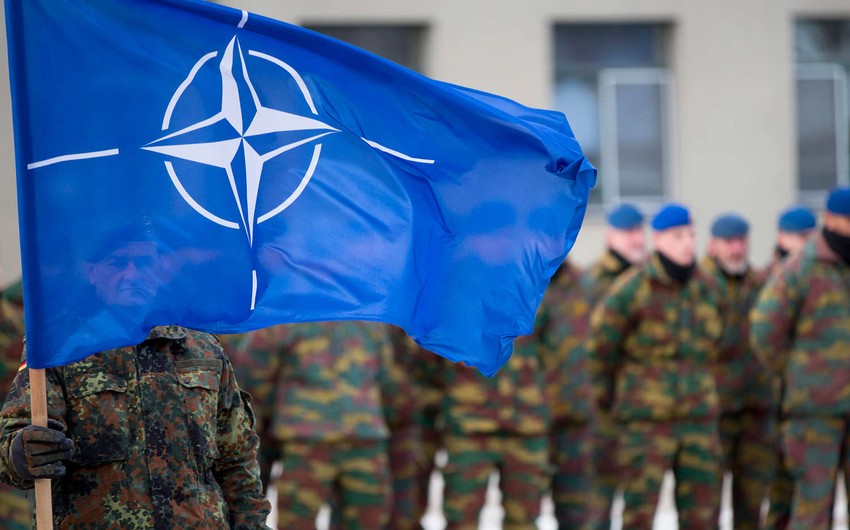NATO is currently developing a system referred to as a “military Schengen” to address challenges related to bureaucratic obstacles hindering the smooth flow of military equipment and personnel across European borders. The initiative aims to establish a network of “military corridors” within Europe, bypassing the current intricate regulations that impede cross-border exchanges among NATO’s member nations.
Planners within the alliance have expressed discontent with the existing red tape, pointing out the need for a more streamlined process to enhance cooperation and efficiency in the movement of military assets. This proposed system seeks to foster a more agile and responsive environment for NATO forces, allowing for quicker and more effective coordination in times of need.
Join us on Telegram: https://t.me/tfiglobal
NATO’s European logistics chief, Lieutenant-General Alexander Sollfrank, has advocated for the establishment of designated zones in November, allowing swift troop and ammunition movement in potential conflicts with Russia. This idea, present for years, is currently under discussion, with potential announcements expected before NATO’s upcoming summit in July. The “byzantine tangle of regulations restricting the exchange and transport of military equipment” in the EU has created a “significant headache” for NATO planners, the outlet said. ”Cross-border exercises frequently involve dizzying quantities of paperwork that would cost critical time in a military crisis,” it added.
Sollfrank focused attention on the urgent need for NATO members to promptly address and modify cumbersome bureaucratic processes, making efforts to “reduce or adapt the red tape” wherever possible. ”Everyone can start. Just do it. And don’t wait. Because in the end we have no time to waste,” he warned.
He illustrated the issue with restrictions, such as paratroopers being unable to use parachutes from other member states, stressing the lack of technical or security reasons for such limitations. “Where’s the problem, for example, with a paratrooper from a European nation A using a parachute from a neighboring nation B after having been trained on this system, or attaching equipment from one nation to the helicopter of another nation?” he asked. If there are no “technical or security” issues involved, there should be no impediments, he said.
Read More: Trump’s NATO jibe is a 100% correct and 200% effective
Lieutenant General Jan-Willem Maas, the chief of Defense Support Command for the Dutch armed forces, has conveyed to The Times the necessity for extensive preparation, acknowledging the current state of readiness falls short of the required level. “We are not where we should be. That’s clear,” he said.
In response to rising concerns, various European officials have recently advised their citizens to brace for the possibility of a military conflict with Russia. Contrarily, Moscow has consistently disavowed any inclination toward warfare with NATO, as accentuated by Russian President Vladimir Putin. Putin has dismissed warnings of potential hostilities as “nonsense,” asserting that Moscow holds “no interest” to engage in aggression against any member of the bloc.
Kremlin spokesperson Dmitry Peskov has responded to NATO’s proposition of establishing a “military Schengen,” characterizing the move as a further escalation in the ongoing confrontation between the US-led alliance and Russia. Peskov anticipates that NATO’s statements on the potential creation of such a military arrangement will heighten tensions in Europe and exacerbate the already strained relations between the alliance and Russia.
Following NATO’s European logistics chief, Lieutenant-General Alexander Sollfrank’s call for European nations to ease regulations for swift troop movement in case of a conflict with Russia, Kremlin spokesperson Dmitry Peskov addressed reporters. In response to whether the Kremlin sees this as a risk for armed conflict or merely an escalatory step in the US-led alliance’s confrontation with Russia, Peskov suggested the latter adding that the alliance has “always considered our country a conditional enemy. Now it considers our country an obvious enemy.”
Read More: Pitting Sweden Against Russia is a Stupid Stupid Plan by NATO
“This is nothing but an attempt to escalate tension in Europe, which will have its consequences,” Peskov said. He noted that Russia views NATO’s expansion with concern, foregrounding that such developments won’t go unanswered.
Dmitry Peskov’s remarks follow NATO Secretary-General Jens Stoltenberg‘s announcement last year to enhance the alliance’s forces in Eastern Europe, aiming for 300,000 high-readiness troops in reserve, including 100,000 capable of deployment to a potential battlefield with Russia within a week.
The US-led alliance has consistently expressed its inclination for Ukraine to join its ranks. In contrast, Moscow has emphasized its preference for a neutral and independent Ukraine, labeling NATO’s expansion in Europe as a threat to Russian national security and a significant factor contributing to the conflict in Ukraine.
